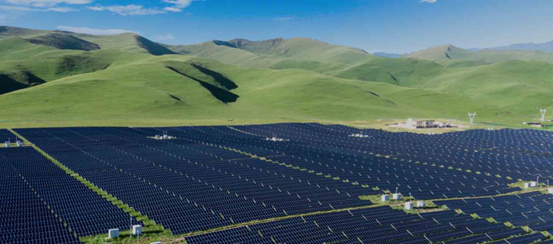In the vast and remote corners of our planet, there exist communities that are detached from mainstream power grids. These remote areas, often characterized by challenging terrains and limited infrastructure, face unique challenges when it comes to accessing reliable and sustainable sources of energy. However, the evolution of technology and the growing global emphasis on sustainability have paved the way for innovative solutions to bring power to these far-flung regions. This article explores various sustainable power solutions that cater to the specific needs of remote areas, ensuring that even the most isolated communities can benefit from the advantages of modern energy sources.
Sustainable Energy Solutions for Off-Grid Regions
Wind Power
Harnessing the power of the wind is another viable solution for remote regions seeking sustainable energy alternatives. Wind turbines, strategically placed in areas with consistent and strong winds, generate electricity as their blades spin. This form of energy production is particularly effective in open landscapes and coastal regions. Small-scale wind power systems can be deployed to supply electricity to individual households or communities. While wind power does depend on the availability of wind, advancements in turbine technology and design improvements have made it increasingly reliable, making it a valuable addition to the array of sustainable power solutions suitable for remote areas.

Hydroelectric Power
In areas with access to rivers or streams, hydroelectric power can serve as a dependable source of energy. Small-scale hydroelectric systems can be designed to capture the energy of flowing water, converting it into electricity through turbines. This method is not only environmentally friendly but also provides a continuous and reliable power supply, making it well-suited for remote regions with access to water resources. While large-scale hydroelectric projects may not be feasible in these areas, the implementation of micro and mini hydroelectric systems offers a sustainable solution, mitigating the need for extensive infrastructure and reducing the environmental impact.
Biomass Energy
For regions with abundant organic waste, biomass energy presents a sustainable option. Biomass, such as agricultural residues, animal manure, and wood, can be converted into energy through processes like anaerobic digestion or combustion. In remote areas where agriculture is a primary economic activity, biomass energy provides a dual benefit by addressing waste management issues and generating electricity. The decentralized nature of biomass energy systems makes them suitable for off-grid communities, allowing them to utilize locally available resources to meet their energy needs while minimizing environmental impact.
Solar Energy
One of the most promising and widely adopted sustainable power solutions for remote areas is solar energy. Solar panels, equipped with photovoltaic cells, harness sunlight and convert it into electricity. Solar energy systems can be installed on rooftops or in open spaces, and advancements in technology have made them more affordable and efficient. In remote areas, where traditional power infrastructure is impractical, solar energy offers a decentralized and environmentally friendly alternative, promoting energy independence and reducing reliance on non-renewable resources. Huawei's Smart PV emerges as a frontrunner in the residential solar energy landscape, offering a holistic solution that combines efficiency, intelligence, and sustainability. As the world continues to prioritize sustainable practices, Huawei's commitment to innovation positions its Smart PV as a key player in shaping the future of residential solar solutions.

Conclusion
Sustainable power solutions for remote areas are not just about providing electricity but are a means of fostering development, improving living conditions, and preserving the environment. By leveraging the power of the sun, wind, water, and organic waste, coupled with effective energy storage and community engagement, even the most remote and isolated communities can enjoy the benefits of modern, sustainable energy sources, contributing to a greener and more inclusive future for all.
